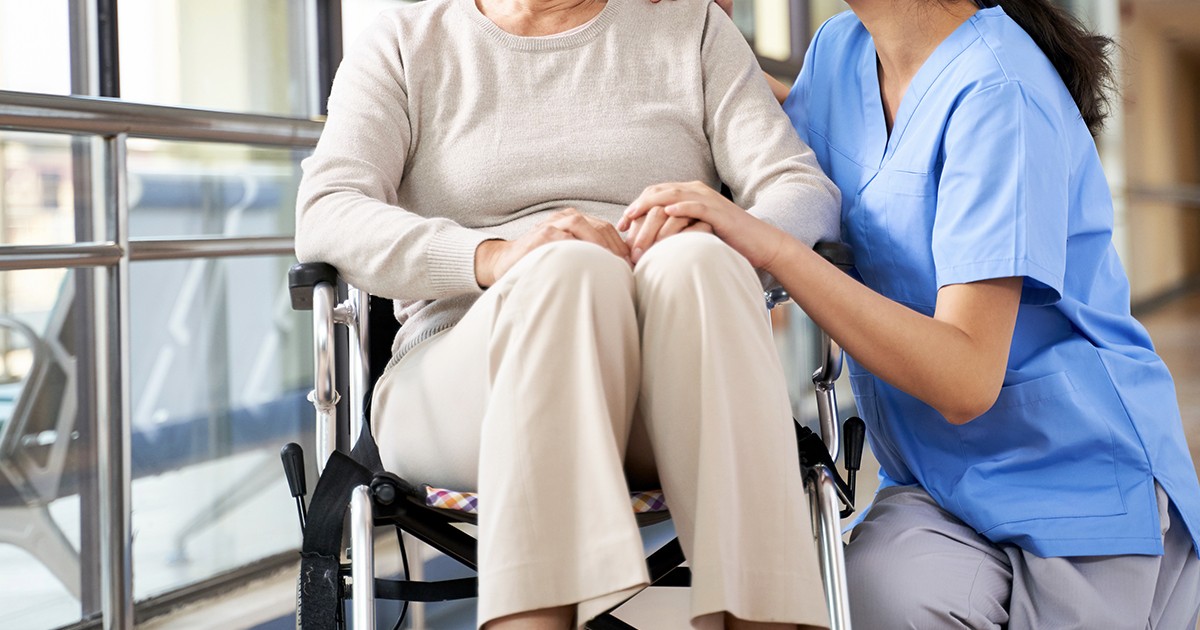
By Madelaine Zadik
The aide entered the room to help Mom into the bathroom. Mom had been waiting a while, way too long in her mind. The CNAs are egregiously overworked, as understaffing means that there are never enough of them to cover all the residents’ needs. Mom had always had a small bladder, and she was understandably impatient, frustrated, and maybe more than a little cranky, but the aide gave her a big beautiful smile. Her long dark hair was pulled into a tail dangling behind her head. She spoke with an accent, and as she was wheeling Mom toward the bathroom, Mom asked, “Where are you from?”
“Cambodia,” the aide said.
Mom, in her German-accented English then said, “I lived in Shanghai for eight years when I was young.”
“Oh really, what were you doing there?” the aide asked.
And they were off. With the door to the bathroom not quite shut, I could still hear the conversation going. Mom could be quite the charmer, plus it is such an interesting story.
This time, however, Mom left out the details of how she and her sister Helga had gotten caught smuggling anti-Hitler newspapers from Czechoslovakia into Germany and had ended up in prison, charged with high treason. She didn’t tell the story of how she had managed to get acquitted while Helga did not, and how, after serving her sentence, Helga ended up in a concentration camp where she did not survive. She didn’t mention how my father had gotten picked up by the gestapo for being Jewish and shipped to Buchenwald, or how she managed to get him released by buying boat tickets for China and proving to the gestapo that they would leave Germany as soon as possible. She didn’t describe the harsh conditions they experienced in Shanghai, that they were only able to survive there because the American Joint Distribution Committee sponsored housing and food for refugees fleeing the Nazis. There was no mention of my father working in the soup kitchen, as there were no paying jobs to be had, nor how after the war was over and the United States Army was stationed there, my mother finally did get a job as a secretary working for one of the army officials. Her boss was from Texas and my mother often laughed about how she had trouble understanding his accent.
No, she condensed all those experiences into, “My husband and I were escaping from Germany in 1939. Being Jewish, we didn’t have much choice as to where we could go. At that time, the only place that would let us in without money or a visa was China. We spent the war years there and were finally allowed into the United States in 1947. We were young and for us it was all an adventure.”
I have no idea what this woman who was helping my mother thought about what my mother was telling her. I don’t know much about this woman at all. I don’t even remember her name, despite the CNAs providing the bulk of the care that the residents received. The low wages, back-breaking work, and long hours render these jobs lowest on the totem pole, and they are notoriously difficult to fill. Often immigrants from other countries, the aides are mostly women who are looking for a better life here. It is these women whose compassion makes such a big difference in the lives of the residents in facilities that otherwise don’t seem to prioritize them.
The aide spoke to my mother of having lost relatives back in Cambodia and how some of her family had just managed to escape. By the time they came out of the bathroom, Mom and the aide were buddies, sharing a bond of survivors.
Mom survived being hit by a train at age sixteen, survived the Holocaust, survived breast cancer, and survived the loss of her faculties.
She had lived a very active life, hiking after knee replacement in her seventies and parasailing in her eighties. Now at age ninety-five, her body was slowly giving out, but she still kept going. Severe osteoporosis meant fractures and pain and limited her walking. Impaired hearing and vision robbed her of many pleasures. Yet, she made the most of what she could, with an amazing ability to find beauty in life, despite the fact that what she could enjoy was diminishing. She basked in the sun in the nursing home garden and had a tan that belied a failing body.
Mom wanted to be able to go to the bathroom without having to wait for help, and she wanted to be able to wipe her own ass. She wanted to be able to take care of herself as she always had. Ever the survivor, mom was trying to figure out how to endure in this nursing home. She really didn’t want to be here, but at least she now had a new friend.